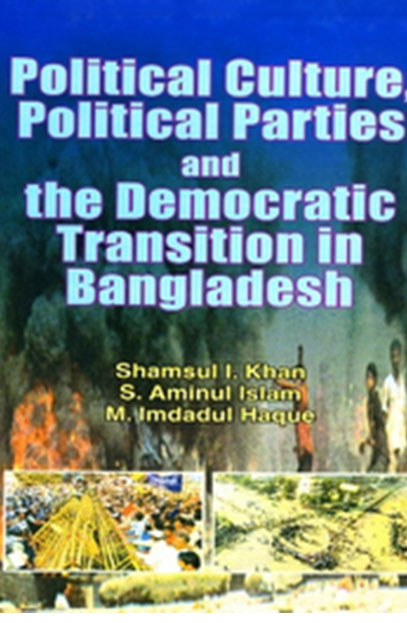
- Shop
- Political Parties
- Political Culture, Political Parties and the Democratic Transition in Bangladesh
Political Culture, Political Parties and the Democratic Transition in Bangladesh
https://uplbooks.com/shop/9847022000080-political-culture-political-parties-and-the-democratic-transition-in-bangladesh-8251 https://uplbooks.com/web/image/product.template/8251/image_1920?unique=337f592
| Language: English |
Tags :
Book Info
Democracy in Bangladesh is of global interest as its success would provide a model for democratic transition in Muslim-majority countries. In 1991 Bangladesh embarked upon a new democratic journey but this journey has been fraught with various crises. The book argues that the nature of the Bangladeshi political parties was primarily responsible for this situation. The major political parties have merged, fragmented and proliferated at will all because of the political or factional interests of individual leaders. As a result, they have failed to sustain consistent ideologies that are vital if political parties are to emerge as viable agents for a stable democracy. However, the role of political parties cannot be understood without taking into consideration the overarching political culture and societal characteristics of the country. Consequently, this work has fleshed out an integrated theoretical framework to examine these characteristics. It provides a brief history of the eleven major political parties and a survey of political leaders and their perceptions, knowledge, values and attitudes centering on the predicament of political parties and democracy in Bangladesh. The first edition of this book, published in 1996, predicted the ongoing crisis of democracy in Bangladesh. This revised second edition after a decade also provides an update on the lingering crisis of democratic transition in the country to date. This makes the volume rich both in historic value and contemporary relevance. It is indispensable reading not only for anyone interested in Bangladesh politics but also for those concerned about the dynamics of democratic transitions in the developing world.

M. Imdadul Haque
M. Imdadul Haque is Professor of Sociology at the University of Dhaka, Dhaka, Bangladesh. The key areas of his teaching and research interests include research methodology, political sociology, and sociological theory.

এম ইমদাদুল হক
M. Imdadul Haque is Professor of Sociology at the University of Dhaka, Dhaka, Bangladesh. The key areas of his teaching and research interests include research methodology, political sociology, and sociological theory.

Shamsul I. Khan
Shamsul I. Khan is Director of the Postgraduate Programs (International Studies) at the School of International Studies, University of South Australia, Adelaide, Australia. The key areas of his teaching and research interests include nonstrategic security, sustainable development, and religion and identity.



